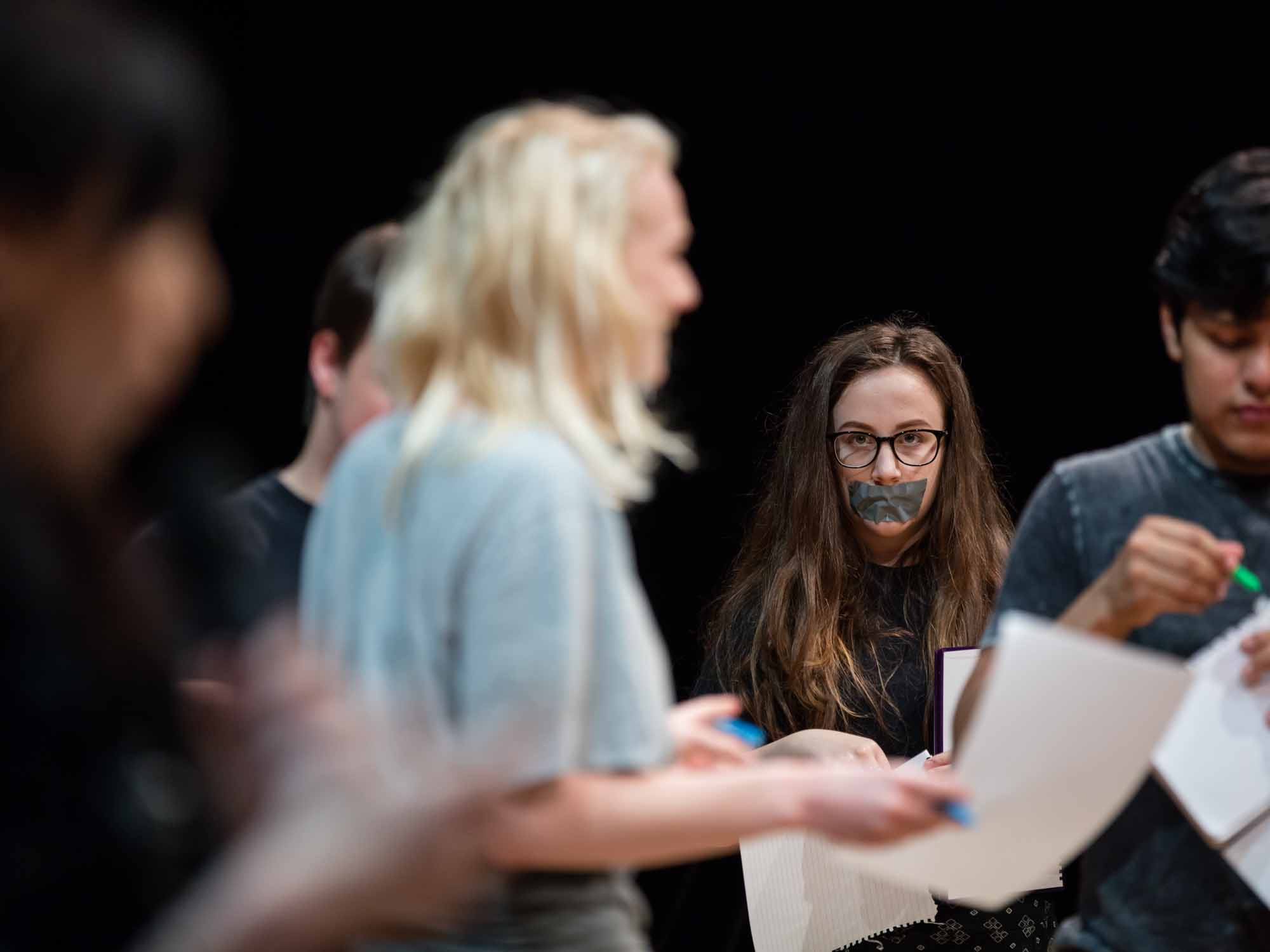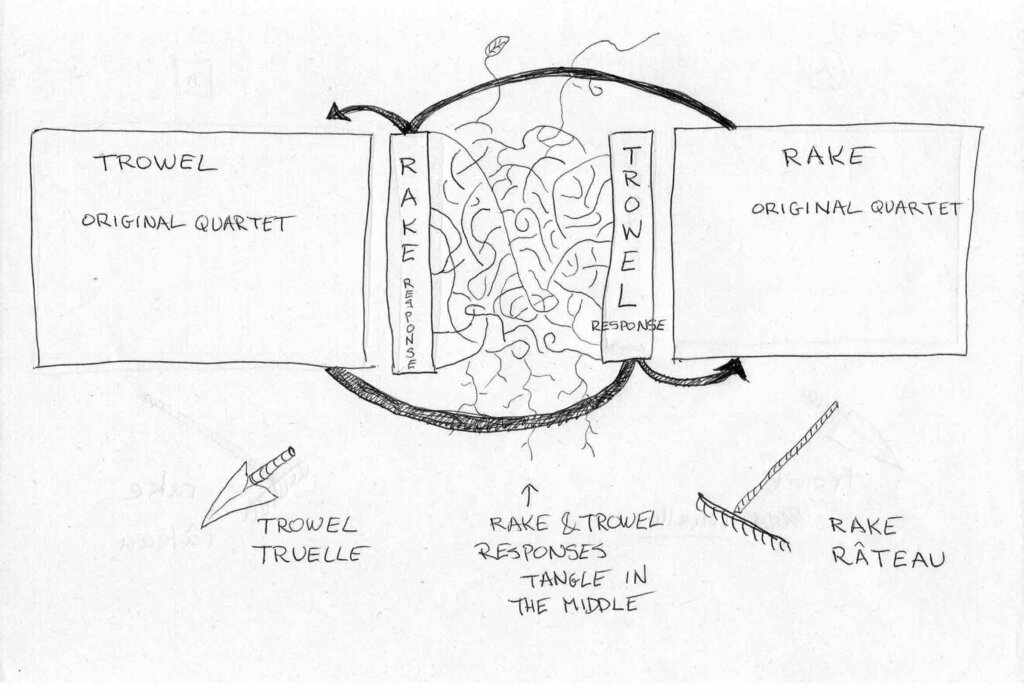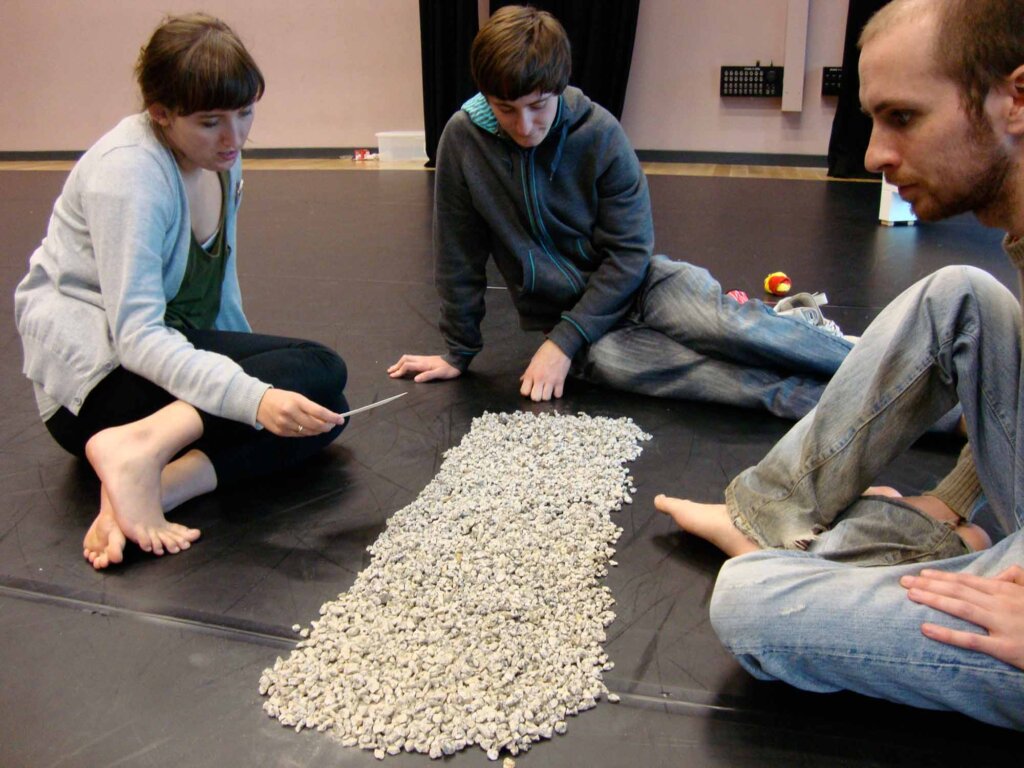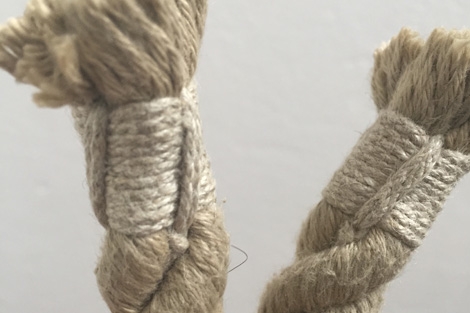Working on an artist residency with students at Plymouth University’s School of Humanities and Performing Arts gives a glimpse into their preoccupations and thought processes. These students are having their eyes opened in various ways as a result of the courses they have embarked on and the enthusiasm is palpable in those students who are taking advantage of this moment in their lives and are, in the company of their peers, seeing with new eyes in unexpected ways.
As part of the residency I organised, students worked with combinations and permutations of material generation and methods of collaboration comprising both field and studio research. In addition, they participated in sessions with invited guests: a workshop with performance writer Mary Paterson, a presentation on lighting design by Martin Langthorne, alternate modes of attention introduced by Eilon Morris through a series of polyrhythmic exercises, and appropriation of musical structure with musician Boris Hauf. One student said: “thanks for the ‘holy shit’ moment, Boris,” and another “it’s like I put on glasses and now I can see.” This same effect of increased awareness and sensation and perspective shift was happening in large and small ways every day.
We engaged in practical work mixed with critical attention and reflection which work hand in hand to increase each individual’s understanding of their own discipline and their own relationship to the work of making live performance.
When a group of four asked could they use the 100-metre rope from my performance (miles & miles with Sophie Grodin) for one of their own I was delighted to agree and their own delight at the prospect of having this resource was testament to the commitment and joy they were finding in the realisation of their own ideas.
There’s plenty of cloudy thought around, and sometimes a lack of interest, but mixing theory with practice and simply getting them to try things out, more often than not, the result was an engagement with material and a new relationship to the work of making performance. My goal was to help them find ways to make work that speaks about what is important to them in particular. Through identifying their own interests they begin to discover clarity, flow, and the energy and enthusiasm needed to spark and support creative work.
Image: students performing on The House stage, Plymouth University, 2017. Photo: Alan Stewart.




